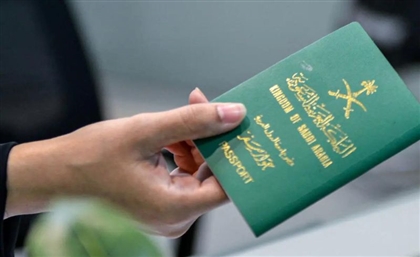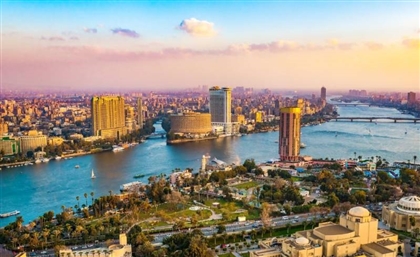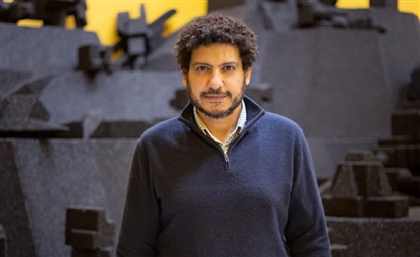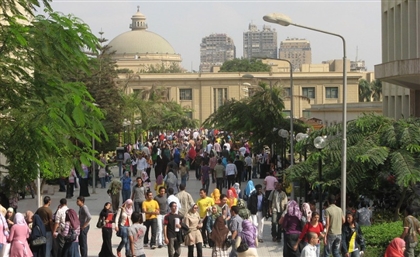The Colonized Project: Navigating Diaspora With TikToker Andrew Riad
Staff writer Farida El Shafie got in touch with Andrew Riad and spoke with him about everything that led to The Colonized Project, and everything the ambitious multimedia project brought back to him.
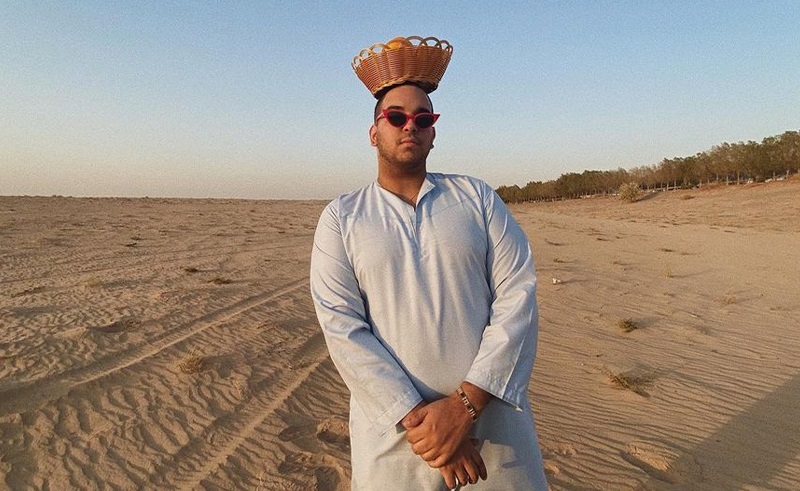
Having downed a Red Bull mere seconds prior to speaking with Andrew, the urge to both word-vomit critical theory and hyperventilate was extremely hard to suppress. The anticipation leading up to our meeting, which took place on Microsoft Teams because we’re remaining authentic to our diasporic nature, had me rummaging through my university courses’ folders. In a feeble attempt at reinvigorating my own understanding of identity and dissolution, I threw myself back into the works of Mahmoud Darwish, Sadeq Hedayat, and Ursula Le Guin. Brimming with codified knowledge and armed with a journalistic angle, I clicked on that big blue button and had one of the most heartfelt conversations my 20s had to offer thus far. Andrew Riad, the TikTok genius turned social media pedagogue, had me had my hands clammy and my throat dry.
Andrew Riad - aka the pink buzz cut/eyebrow slit/laugh propeller of Arab TikTok - is an Egyptian born and globally raised powerhouse. Currently residing in Dubai, Riad has spent most of his life bent over books, entrenched in advocacy and grounded in colonial and post-colonial thought. Whilst his internet personna became well-known on TikTok (and further cemented on Cosmopolitan Middle East when he was dubbed one of the “Middle Eastern TikTokers You Need to Follow Right Now”) Riad’s YouTube journey began at the tender age of eleven. Much like many canonical creators today, he ploughed into the TikTok arena as a mere lockdown pastime, and much like his successful counterparts, he found fame. At the tail end of graduating with a degree in Legal Studies and Creative Writing at NYUAD (New York University, Abu Dhabi), Andrew Riad took to social media to reify his own personal relationship with identity.
A multimedia platform coalescing of personhood and livelihood, The Colonized Project anchors the intangibility of diaspora within the palpable context of social media. Procuring an amalgamation of prose, poetry and film, the Instagram account steps outside of the confines of vanity and serves as a reflection of Riad’s personal decolonizing process. The cacophonous nature of the platform mirrors that of Riad’s own tumultuous relationship with the rigorous process as the chaos ultimately acts as a reflection of the ebb and flow of post-colonial discourse. Prior to ever delving into Riad’s The Colonized Project, an introspective comprehension of our privileged state as educated individuals anchored our angle.
Where do you position yourself within the context of colonization? And how do you define and conceptualise colonization?
“It is the fact that I was displaced from home and that my parents moved us around and the fact that I grew up in the American education system that led to me inheriting - vis-a-vis school - certain principles, ideologies, and values. It was and continues to be why I'm able to then reconcile whatever I am, but it also operates and kind of clusters. For example, I feel like the way I conceptualise colonialism and then therefore how to decolonize and the English language is so different than when I think of it and talk about in Arabic, and even more different when anchored within different aspects of my identity.”
Why poetry?
“Poetry kind of enables you to form an identity when it feels like it's been scattered and, like, tarnished by life. It’s an opportunity to rewrite life. All these facets, all these multitudes and complexities, and our personalities and our identities were not strictly romanticise-able. We could sit back and rewrite a history that was so violent or that erased us or we can take it as an opportunity to kind of reclaim a fragmented past.”
De-colonization necessitates an highly introspective form of unlearning. What does unlearning look and feel like to you?
“The thing that I keep finding with The Colonized Project is that it grows as I grow, and learn as I learn. It is a very intimate process like that. Much like art and artistic creation in general. I'm doing an absurdist kind of psychological take and I want to incorporate a film element too. It's all these things. I'm just like, interested in. I'm interested in these facets. I'm interested in how all these dichotomous identities respond to one another, and then how they feed into me, and how I respond to them. I don't know what it's like, for example, to be born and raised in Egypt, to live in Egypt. Maybe I would have been so different. Maybe I would have been, quote unquote, more authentically decolonial or whatever that means. It's a process, and it's not all poetry and mythologizing. It's also very violent and cathartic and very visceral.”
Your shoots interpolate western influence, yes, but they also raise a lot of questions about misogyny as a deeply colonial construct, do you mind elaborating further?
“There's masculinity as and there’s performed masculinity, imposed vis-a-vis colonial weapons and forces, and violence. But it's also about how we historically inherited it as our own. There’s also femininity and the subliminal nature of it. What is femininity? What do these things mean? Inside one person and then as The Colonized Project grew, it became more abstract and vague.”
Your shoot ‘Mother’- is it a love letter to your mum?
“If I were able to put it on a platter and slice it open in two, I would give one to my mother and one to my grandmother. When I look for all these decolonial things or whatever, outside of academia or in academic spaces, or in English or in Arabic, or in Coptic or wherever. I find myself always going back to the very, very kind of intimate processes with my grandmother and mother. I look towards them for a kind of vernacular. I look towards them as the school of thought almost. Maybe also because I am literally a part of them and they are literally a part of me. You know, biologically. This whole process is one of reconciliation and of understanding. Even the poetry I write, if it is centred around my mother or my grandmother, it is still my voice. It is still my thoughts. It is not them. And I am cognizant of that too, of the opportunity in that, but also of the limitations in that. If my grandma were still here, I would ask her so many questions, I would say, much more. I would attempt to understand her so much more.”
What grounds your writing process? What is that one thing you constantly find yourself channelling when you’re writing?
“I write poetry through sound and rhythm and feeling. If I'm beginning to write a poem I'll think of a visual or a sound before I will think of making a sound with words or articulating a sentence. That's interesting because that's a very, very Coptic thing to do. Copticity is very engrossed in ritual and in sound, like any indigenous kind of practice. There's something to that process to where it's making sense of something, but not through a vocabulary or a vernacular for us to understand. But through something, I don't know a lot more profound, something much more intimate.”
Intimate. The backbone of the conversation and the fire that Riad breathes comes back full throttle. If there is one main takeaway about Andrew Riad and The Colonized Project is that they are both built on bricks of valour and rods conjoined by love. It is his malleable view on life and learning that has sewn back the holes ripped open at the hands of displacement. Whilst the word grit feels inadequate, what Riad channels when he attempts to revisit home is the fortitude by which his mother and grandmother occupied previous homes. Perhaps unbeknownst to him, Riad syphons courage and uses it to propel him forward.
Riad denotes the way in which he actively conflates his own personal timeline with that of the political and personal familial past. To a reader versed in the inner workings of generational trauma, this comes as no surprise. However, what changed my perspective on the matter was his delineation of just how much this precise coalescence of narratives forged an indestructible bond between him and the women who raised him. From a slightly impersonal standpoint, such socio-political gaps, dissonances, and lapses only further the subconscious distance between ancestor and descendant. However what Riad stands testament to is the personal side; the side where there is a tangible exchange of narratives, emotions, and stories that inevitably Palomar knot diasporic families together.




